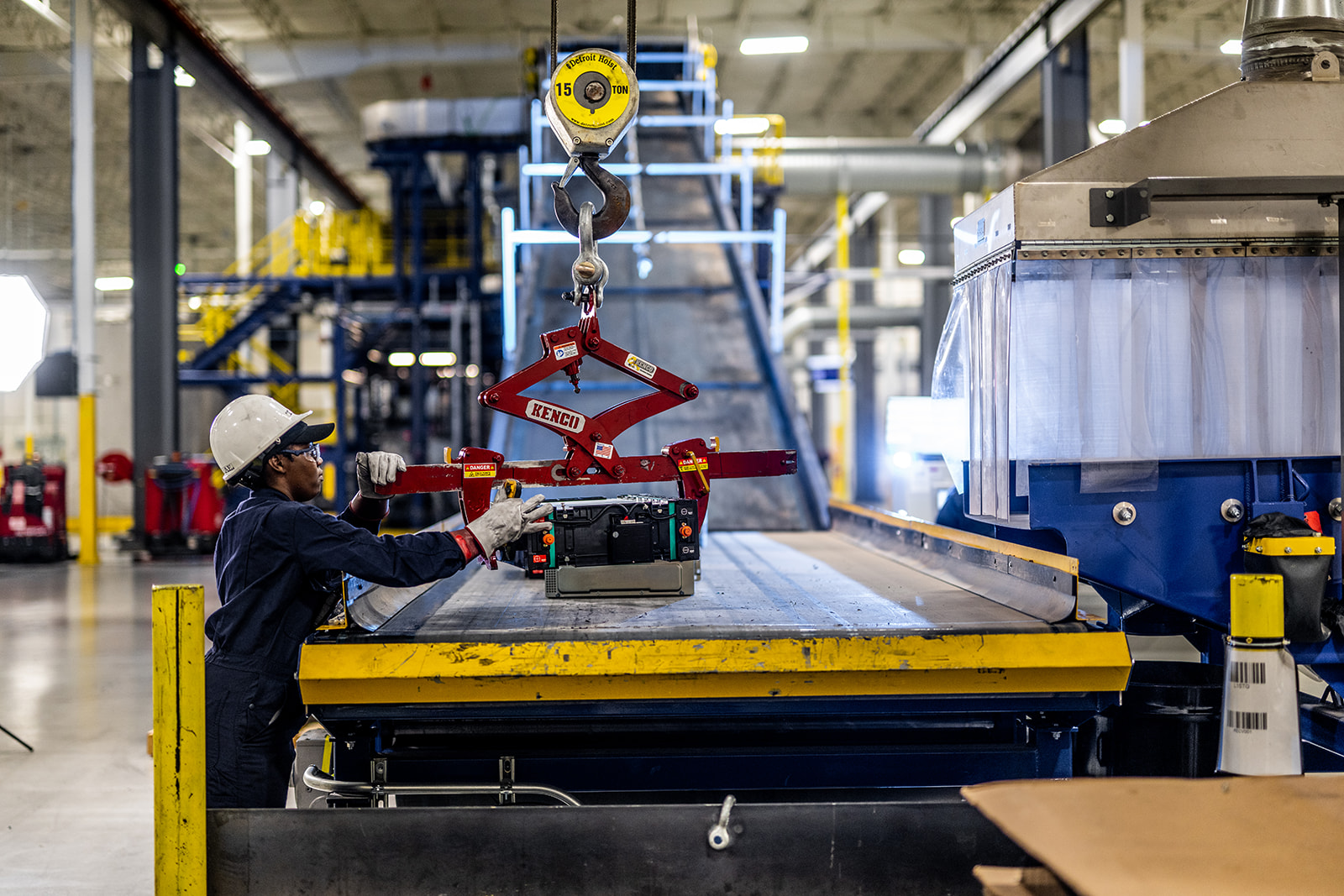



August 2, 2023



July 24, 2023
Original article published via Auto Futures
Canada’s Li-Cycle was founded in 2016 to address a missing link in the future of global electrification – the lack of an economically and environmentally sustainable lithium-ion battery recycling solution. Fast forward to today, its technologies are returning lithium-ion batteries and battery manufacturing scrap to the supply chain with up to a 95% recovery rate.
“As Li-Cycle scales its industry-leading technologies, we maintain an unwavering dedication to sustainability. The paramount focus remains on minimizing solid waste streams, reducing wastewater discharge, and mitigating the impact of air emissions,” Richard Storrie, Li-Cycle’s Regional President, EMEA, tells Auto Futures.
Li-Cycle’s Spoke & Hub Technologies business model enables the return of battery materials back to the domestic supply chain for re-use by battery manufacturers and electric vehicle (EV) and energy storage producers.
At the company’s Spokes facilities battery materials are recycled through a shredding process to produce ‘black mass,’ an intermediate product which contains highly valuable metals, including lithium, nickel, and cobalt.
“Our Generation 3 Spoke technology has the capability to directly process full electric vehicle (EV) and energy storage battery packs without any manual dismantling or discharging, which enhances safety and efficiency and is a significant value differentiator for Li-Cycle. Our Spoke technology is also one of the most energy efficient solutions commercially available,” explains Storrie.
“Across our operational Spokes in North America, we have a total processing capacity of 51,000 tonnes of lithium-ion battery material per year. While we have predominantly been expanding and bolstering our presence in North America, with the majority of our recycling capacity within the U.S,” he adds.
Read the full article here.
